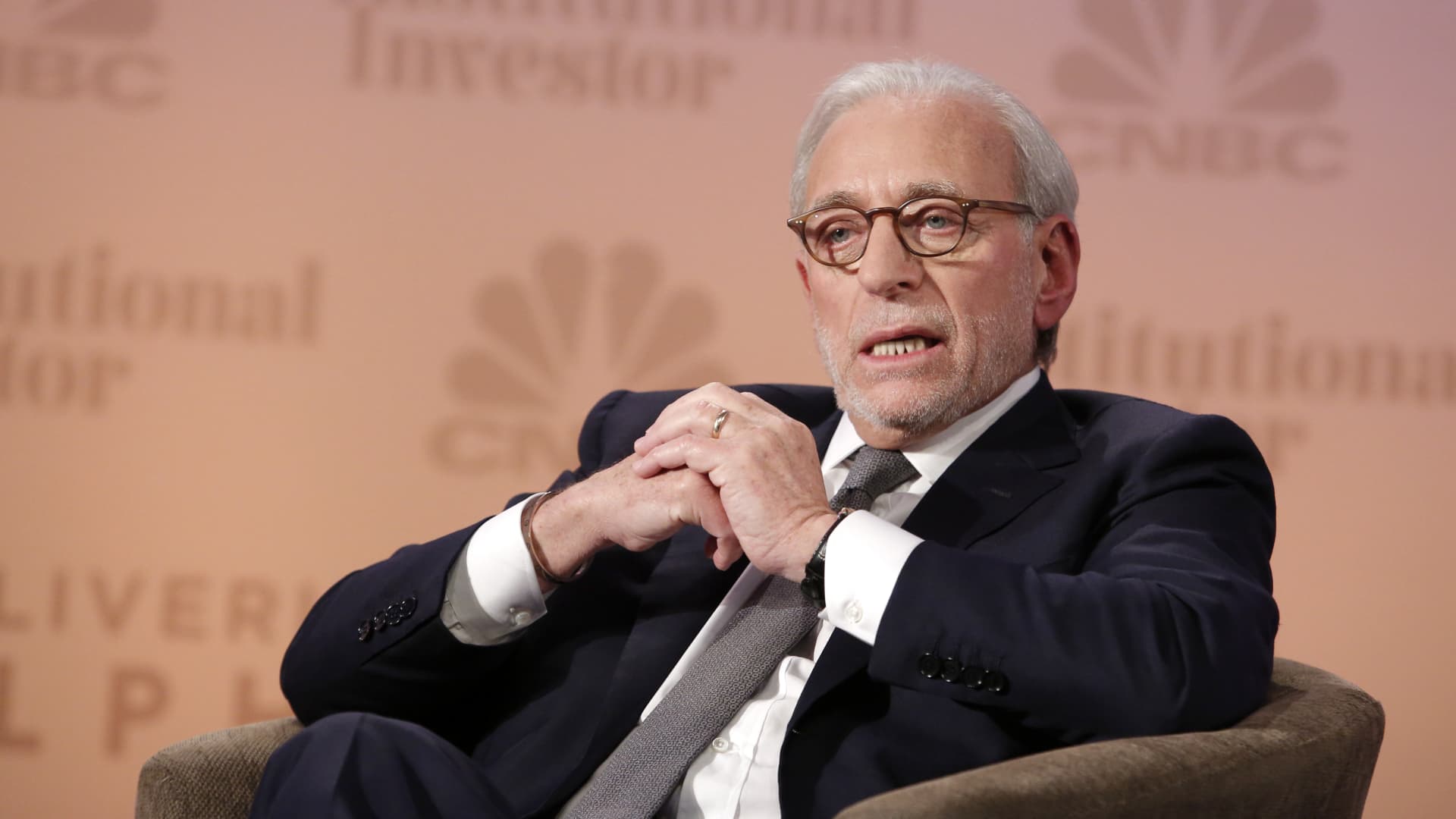Kosovo Police continue to uphold security with search, patrol and control activities in the region after the clash which led by Kosovo Serb politician Milan Radoicic in Banjska northern town of the country, on Sept. 24 in Zvecan, Kosovo on October 3, 2023. The clash broke out in the village when a group of armed Serbs blocked a bridge with two trucks. A shootout erupted after the group opened fire on police, leaving one police officer dead and another injured. (Photo by Vudi Xhymshiti/Anadolu Agency via Getty Images)
Anadolu | Anadolu | Getty Images
Davos, SWITZERLAND — With Europe’s attention centered on the ongoing war between Russia and Ukraine, peace and stability is far from guaranteed in another of the region’s most volatile conflict zones, according to a top EU diplomat.
Relations between Serbia and Kosovo, which have been fraught since the pair’s brutal conflict in the 1990s, remain delicate one year on from a tentative agreement on a new path to normalization.
“The stability is fragile. We cannot take peace and stability for granted,” Miroslav Lajčák, EU special representative for the Belgrade-Pristina dialogue and Western Balkans, told CNBC in Davos, Switzerland last month.
The Belgrade-Pristina dialogue is a series of talks facilitated by the European Union designed to ease hostilities between the neighboring southeastern European countries.
In February 2023, a path to normalization was agreed upon by Serbia and Kosovo, marking a major step forward for the long-time adversaries, whose decades long friction centers on territorial disputes and ethnic divisions.
But that progress was later marred by a resurgence in violence in northern Kosovo, including a deadly shootout between a heavily armed group of ethnic Serbs and Kosovo special police forces in the village of Banjska.
‘No way back’
Northern Kosovo has an ethnic Serb majority and Belgrade thus claims it as its southern province. Kosovo as a whole, meanwhile, is around 93% ethnic Albanian and Pristina declared independence in 2008.
Years of conflict between the pair have left Europe highly divided on the path forward, with several EU members — Spain, Slovakia, Cyprus, Romania, and Greece — and other non-EU neighbours disputing Kosovo’s claim to independence.
However, Lajčák said that the normalization agreement had advanced the situation “like never before” and noted that the focus was now on implementation. Normalization measures include the development of “normal, good-neighbourly relations” and restraint from the “threat or use of force” in future disputes.
“There is no way back,” he said. “There is no way before these agreements because these agreements are accepted by both parties.”
Normalization will also depend on how directly and closely they are linked to Kosovo and Serbia’s EU path.
Miroslav Lajčák
EU special representative for the Belgrade-Pristina dialogue and Western Balkans
Both the EU and the U.S. are heavily invested in the normalization of relations between Serbia and Kosovo, even as they contend with other rapidly evolving international conflicts between Israel and Hamas and Russia and Ukraine.
But the clock is ticking. With elections due this summer in the European Parliament and later in the year in the U.S., progress on normalization talks will be critical before the issue is deprioritized.
“What will start before the EU and U.S. go into elections will continue throughout the electoral process,” Lajčák said. “But what will not start before, I will have my doubts that it will start after.”
Kosovo police officers and NATO’s Peacekeeping Force in Kosovo (KFOR) continue to ensure security with search, patrol and control activities in the region after the incidents in Banjska in the north of the country on September 24 in Zvecan, Kosovo on September 30, 2023.
Anadolu | Anadolu | Getty Images
Resistance is more likely to come from Serbia and Kosovo’s respective leaders, President Aleksandar Vučić and Prime Minister Albin Kurti, who have nationalistic bases at home to appease.
The stakes are high for both sides. With aspirations toward EU membership in the offing for Serbia and Kosovo, Lajčák said that this could provide the EU with a carrot to incentivize peace between the two countries.
Serbia is currently in the midst of EU accession talks, having been granted candidate status in 2012, while Kosovo has potential candidate status, though both will require major reforms to be admitted to the bloc.
“The success of the process of normalization will also depend on how directly and closely they are linked to Kosovo and Serbia’s EU path,” Lajčák said. “That’s the strongest leverage we have.”







